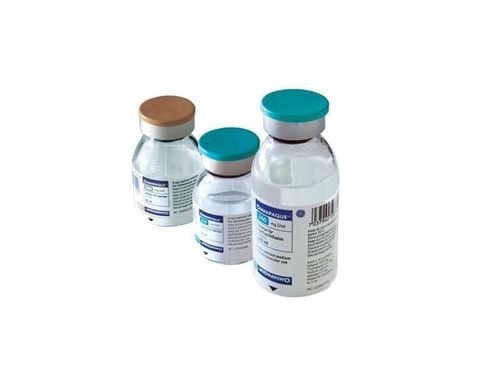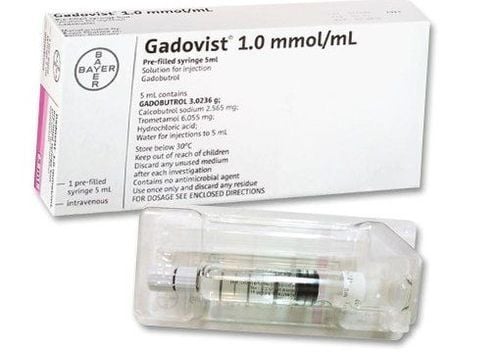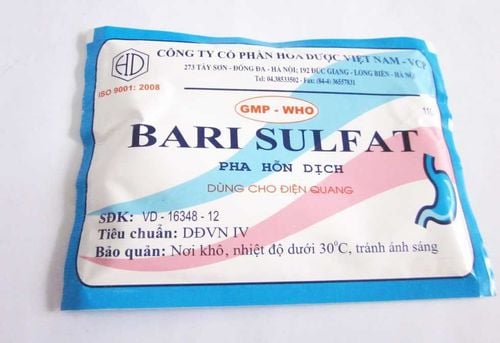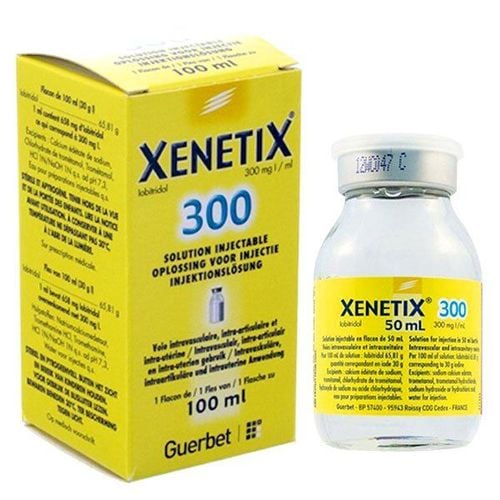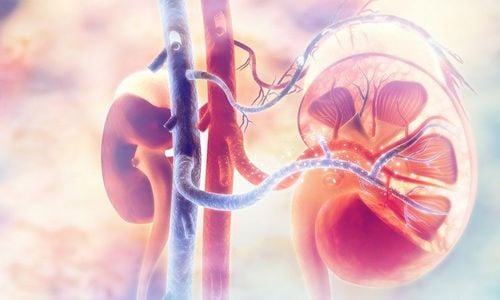This is an automatically translated article.
The article is professionally consulted by Master, Doctor Nguyen Thuc Vy - Radiographer - Department of Diagnostic Imaging - Vinmec Nha Trang International General Hospital.Contrast containing iodine is often used before performing certain imaging techniques such as X-ray or CT. Contrast works by increasing the contrast of body parts and fluids when you have an X-ray or CT scan, so the images are clearer and easier for your doctor to diagnose. strong.
1. Why use iodinated contrast media?
In a CT scan, dense substances such as bone are easily seen, but soft tissues are not so clearly visible. Therefore, to help the doctor see these soft tissues better, a special dye is used called a contrast material. These materials block X-rays and appear white when taken, highlighting blood vessels, organs, or other structures.
Contrast materials usually contain iodine or barium sulfate. The doctor will put these contrast agents into the patient's body in one or more of the following ways:
Injection: The drug is injected directly into a vein for cases where it is necessary to diagnose problems with blood vessels, urinary tract urinary tract, liver or gallbladder. Oral: Drinking a liquid with a contrast agent can enhance a clear picture of the patient's digestive tract. Enema form: for cases requiring rectal imaging.

Thuốc cản quang chứa iod được đưa vào cơ thể qua đường tĩnh mạch
After a CT scan with contrast material, the patient needs to drink a lot of water to help the kidneys remove the contrast material from the body.
2. Side effects of iodinated contrast agents
Some effects of iodinated contrast agents include:
Diarrhea, nausea, vomiting, stomach pain, flatulence or headache may occur after use. If any of these effects persist or get worse, tell your doctor or pharmacist as soon as possible. The patient should note that the doctor has given the patient an iodinated contrast agent because the doctor has judged that the benefit of contrast injection that the patient receives will outweigh the side effects of the drug. Contrast contains iodine. Many people use iodinated contrast agents without any serious side effects. Tell your doctor right away if you have signs of kidney problems such as urinating less or no urine after using iodinated contrast media. Allergy to iodinated contrast: there are many degrees of allergy to iodinated contrast media from mild such as itching, rash to severe such as anaphylaxis to contrast dye, even death from anaphylaxis to contrast. . This is a very serious allergic reaction to this medicine, but it is very rare. Tell your healthcare provider right away if you have any symptoms of an allergic reaction such as rash, itching/swelling (especially of the face/tongue/throat), severe dizziness, trouble breathing.

Người bệnh có thể gặp tình trạng đau đầu sau khi sử dụng thuốc cản quang chứa iod
3. How to prevent side effects?
Before using iodinated contrast media, if the patient knows he or she has a history of allergic reactions to iodinated contrast agents or other ingredients in contrast media, tell your doctor or pharmacist immediately about your condition or if the person has any other type of allergy. In addition, patients should be aware that contrast dye products containing iodine may contain inactive ingredients that can cause allergic reactions or other problems, so patients should consult their doctor. or pharmacist for detailed advice before use. Before using contrast medium containing iodine, the patient should tell his doctor or pharmacist his medical history such as: asthma, history of allergies to drugs, foods or any substances, kidney disease . Before surgery, tell your doctor or dentist about all medications you are taking (including prescription drugs, over-the-counter medicines, and herbal products)🡪 that you should give up. If you have diabetes, you should talk to your doctor about any medications you are taking because in some cases people with diabetes may need to stop metformin for 48 hours before and after an iodinated contrast medium. During pregnancy, contrast agents containing iodine should only be used when clearly needed. Therefore, pregnant women need to discuss the risks and benefits of using iodinated contrast agents very carefully with their doctor.

Đối với phụ nữ mang thai, cần được bác sĩ tư vấn kỹ trước khi tiến hành thủ thuật
Vinmec International General Hospital with a system of modern facilities, medical equipment and a team of experts and doctors with many years of experience in neurological examination and treatment, patients can completely peace of mind to examine and treat raised intracranial pressure at the Hospital.
To register for examination and treatment at Vinmec International General Hospital, you can contact Vinmec Health System nationwide, or register online HERE.
MORE
What is a CT scan? In which cases need contrast injection? Matters needing attention about contrast in CT scan What is contrast agent?





